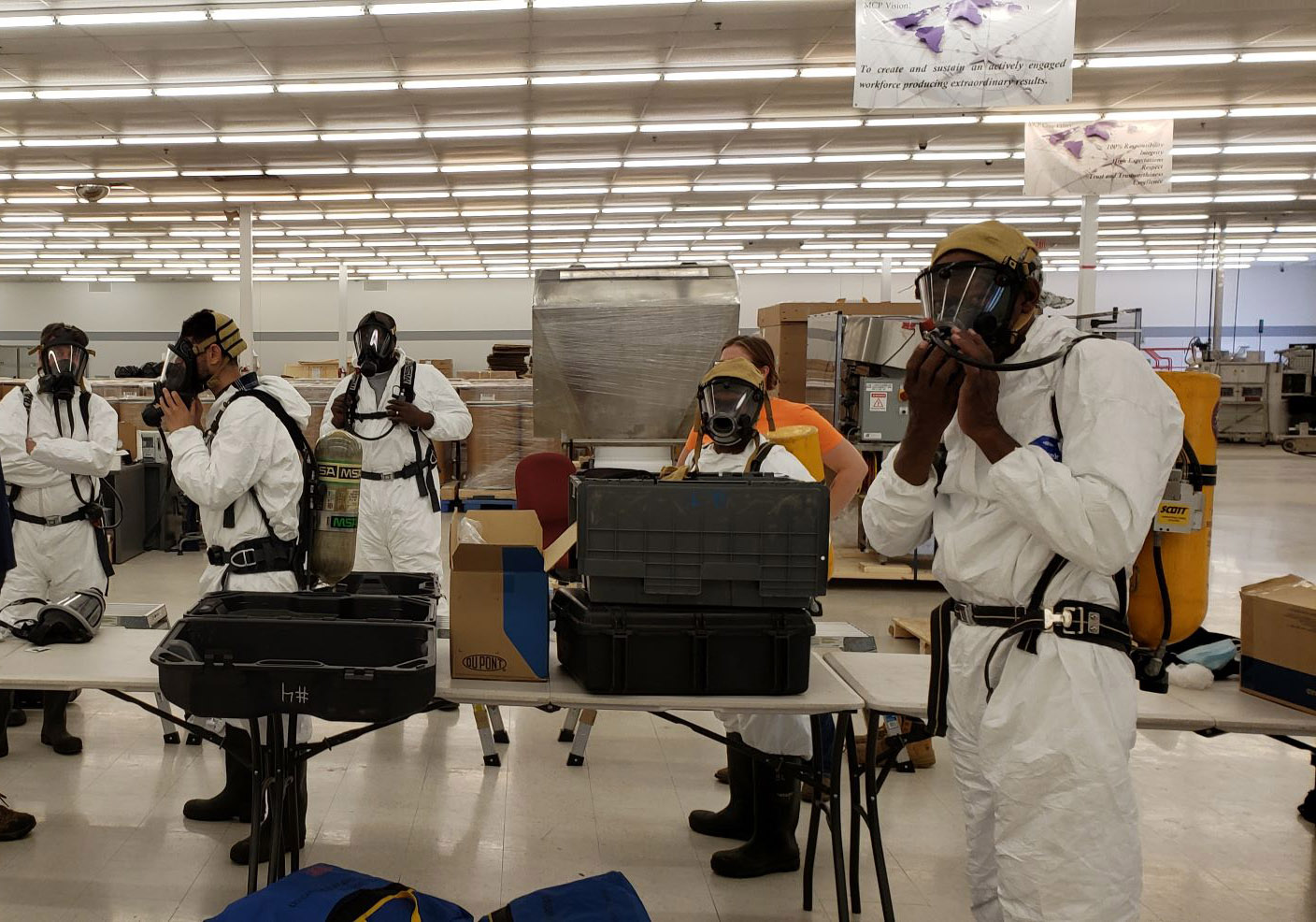Health, Safety and Emergency Preparedness: Adjusting Delivery Methods for Hands-On Training

Zoom meetings and virtual trainings have become the new normal for many industries, but what happens to the training that requires hands-on practice?
HAZWOPER 24-hour Operations Level Emergency Response is one such training.
“Like most training organizations, we have been working to expand our capabilities to offer alternative programming approaches. We have made significant investments in the equipment needed to produce virtual programming at the quality levels our customers have come to expect from CIS,” says UT CIS Health, Safety and Emergency Preparedness program manager Walter Idol.
“At the same time, we fully recognize that some training programs, particularly those that involve significant skill-based content, like our HAZMAT and technical rescue programs, do not translate well onto a virtual learning platform,” Idol says. “For these classes, we are developing enhanced sanitation protocols, acquiring additional equipment and changing some of our procedures to allow us to provide the training our clients need in a manner that is as safe as we can make it for both our students and instructors.”
Workers must be trained to the operations level before they are authorized to help control hazardous waste spills. In the HAZWOPER 24-hour Operations Level Emergency Response course, students refine their ability to recognize hazards and improve their decontamination, monitoring, and safe work practices, as well as participate in full dress-out using personal protective equipment.
UT CIS HAZWOPER Safety Consultant Chuck Gluck recently led this course with ten participants in Knoxville (pictured). In order to keep participants and instructors safe and focused on the training, the following safety measures were taken:
- Participants’ temperatures were taken every morning of the course
- Extra steps were taken in sanitizing course equipment
- The instructor provided a detailed overview the new COVID requirements in the biological exposure section of the program
As we continue through the COVID-19 crisis, UT CIS Health, Safety and Emergency Preparedness courses will be reviewed for the best form of delivery that ensures safety for everyone involved and an optimal hands-on experience. Learn more about these trainings at http://www.cis.tennessee.edu/health_safety.
